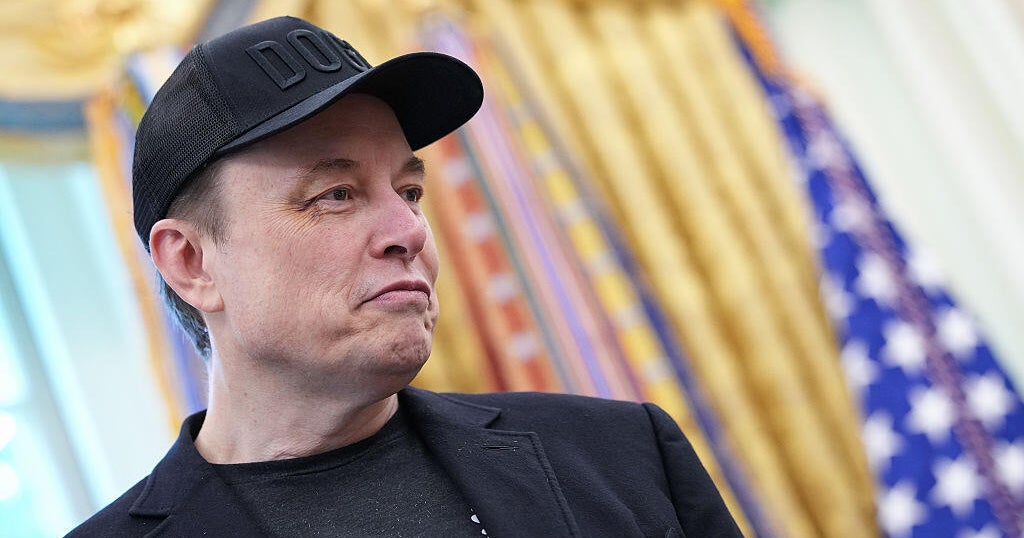On Saturday, billionaire entrepreneur Elon Musk voiced his strong opposition to President Donald Trump‘s expansive tax and spending legislation, warning that it could lead to job losses and hinder emerging industries. Musk took to social media to criticize the nearly 1,000-page bill and suggested it would hurt the American economy. His comments reignite a conflict with the Trump administration, a situation exacerbated by the urgency of Senate approval before a key deadline.
| Article Subheadings |
|---|
| 1) Musk’s Opposition to Legislative Changes |
| 2) Previous Criticisms and Sentiments |
| 3) Tensions Between Musk and Trump |
| 4) Potential Political Repercussions |
| 5) Moving Forward: Musk’s Business Focus |
Musk’s Opposition to Legislative Changes
On Saturday, Elon Musk articulated his opposition to a significant tax and spending bill being debated in the Senate. In a statement on social media, he proclaimed, “The latest Senate draft bill will destroy millions of jobs in America and cause immense strategic harm to our country.” His strong language captures the urgency he feels about the implications of the legislation. Musk argued that the bill favors outdated industries over sectors vital to America’s technological future.
While the Republican Party has been scrambling to pass the legislation, Musk’s warning serves as a stark reminder of the bill’s contentious nature. The Senate was preparing to vote to initiate discussion on the legislation, originally intended to bolster growth and create jobs. However, Musk’s critique added a layer of complexity, suggesting that the bill could have the opposite effect.
Previous Criticisms and Sentiments
Musk’s disdain for the proposed legislation is not a new development; it has been building over time. In May, just days before departing from his role in the federal government, he expressed disappointment regarding the bill’s “massive spending.” In a conversation with press, he conveyed concern about how the bill would escalate the budget deficit rather than decrease it. His remarks highlighted a fundamental disagreement about the merits of fiscal stimulus versus fiscal restraint.
During that earlier discussion, Musk distinguished between the size and quality of the bill, stating, “I think a bill can be big or it can be beautiful. But I don’t know if it can be both.” Following recent developments in the Oval Office, his criticisms intensified, referring to the legislation as “pork-filled” and a “disgusting abomination.” Such strong wording underscores Musk’s belief that the bill undermines critical efforts in innovation and efficiency.
Tensions Between Musk and Trump
As Musk ramped up his criticisms, tensions between him and President Trump also heightened. The initial camaraderie between the two figures is remarkable, given Musk’s substantial financial contributions to Trump’s campaign and other Republican candidates. Following Musk’s criticisms, Trump expressed disappointment, triggering a series of exchanges that left political observers wondering how this relationship might unfold.
In a troubling turn, Musk insinuated without evidence that Trump had connections to controversial figures, a move that intensified the conflict. Meanwhile, Trump threatened to reassess federal financial support for Musk’s companies, which rely heavily on government contracts and grants. This stalemate raises questions about the future of these business relationships amid a tightening political landscape.
Potential Political Repercussions
The political implications of Musk’s latest comments could be significant. Speculation arises as to how his criticisms might influence Republican senators who are anxious to pass the legislation before a Fourth of July deadline. Many in the party fear that losing support from influential figures like Musk could shift public opinion against them.
However, Musk has also indicated potential for reconciliation, admitting that some previous statements were perhaps too severe. This self-awareness illustrates the complexities of navigating the political landscape while maintaining business interests.
Moving Forward: Musk’s Business Focus
As the political drama unfolds, Musk’s attention seems increasingly directed toward his business endeavors rather than political interference. He has been investing heavily in projects at Tesla and SpaceX, indicating a desire to prioritize innovation over political discourse. This shift may suggest a long-term strategy to distance himself from direct political involvement, focusing instead on achieving technological advancements.
Nevertheless, the complex web of his political influencing in the past raises questions about his ability to effectively navigate these dual roles. As electoral tensions continue to evolve, Musk’s influence on the political landscape may fluctuate, but his commitment to his business endeavors appears steadfast.
| No. | Key Points |
|---|---|
| 1 | Elon Musk criticizes Trump’s tax and spending legislation as harmful to American jobs. |
| 2 | Previous remarks by Musk indicate his long-standing opposition to excessive government spending. |
| 3 | Tensions escalate between Musk and Trump amid public criticisms and threats regarding subsidies. |
| 4 | Implications of Musk’s comments could significantly impact Republican senators’ legislative efforts. |
| 5 | Musk may focus more on business pursuits moving forward, distancing from political engagements. |
Summary
The ongoing clash between Elon Musk and President Donald Trump highlights the challenges of navigating politics and economics in today’s landscape. Musk’s fierce critiques of the proposed tax and spending bill illuminate significant divisions within economic policy perspectives. As this situation evolves, the outcomes could have lasting impacts not only for Musk and Trump but also for broader fiscal and industrial policies affecting the nation.
Frequently Asked Questions
Question: What are Elon Musk’s primary concerns regarding the tax and spending bill?
Musk is worried that the legislation will lead to job losses, favor outdated industries, and ultimately harm the future of technological innovation in America.
Question: How has Musk previously critiqued government spending?
He has expressed disappointment with excessive spending that increases the national deficit, indicating a preference for fiscal restraint that better supports innovation.
Question: What are the potential consequences for Musk’s businesses due to his public criticism?
Musk’s criticism could lead to strained relationships with the Trump administration, possibly affecting federal contracts and subsidies critical to his companies.


